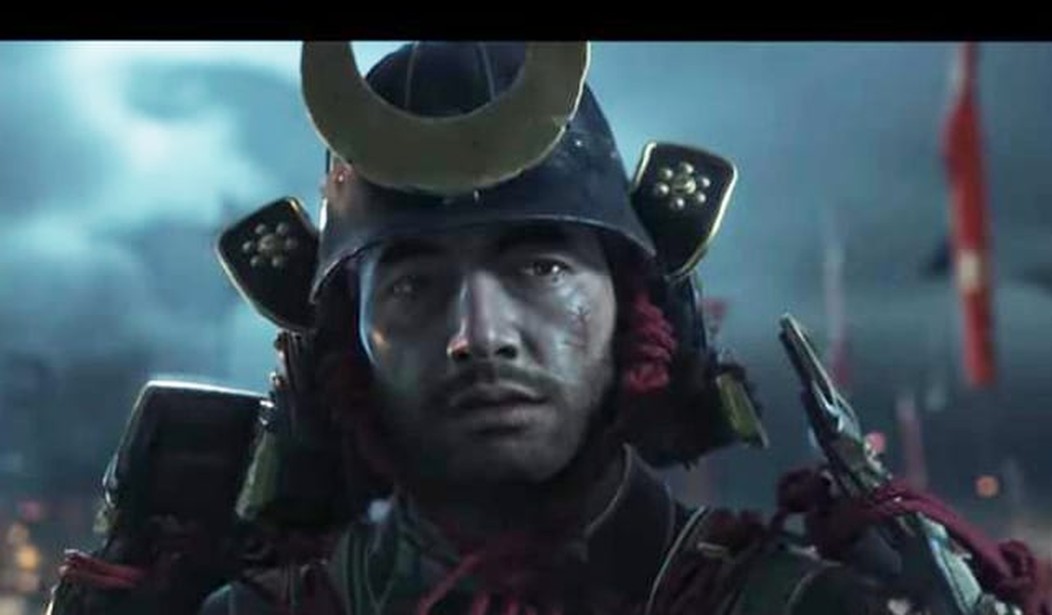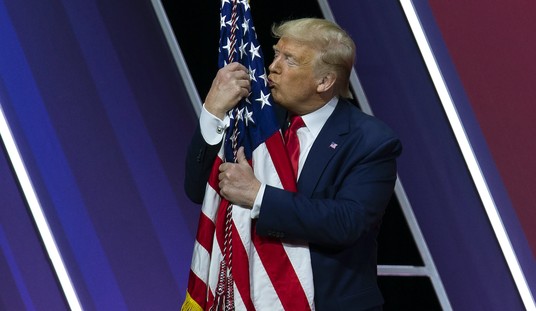
The Japanese people don’t suffer from a lot of the same social ills we do, and by “social ills” I mean the social justice warrior problem we see in the west. As such, Japan looks at culture differently than we do, and by “differently” I mean more fairly and realistically.
The “social justice warrior” is a primarily western phenomenon. The “SJW” as they’re commonly referred to tend to be as self-important as they are ignorant. They declare themselves the voice of the marginalized while the “marginalized” are often wondering who elected them to speak on their behalf.
God forbid you’re one of those “marginalized” people speaking out against the SJW speaking for you or you truly will be marginalized. You can ask Terry Crews about that.
Recently, SJWs in America decided to speak for the Japanese people about a video game that was created by Sucker Punch Productions called “Ghost of Tsushima.” The game takes place in 1200s feudal Japan as the Mongols were making their conquest across Asia. The player is put in the shoes of young samurai Jin Sakai, who must choose to embrace or break with the code of Bushido (Japan’s version of chivalry and honorable combat) in order to win the war against an overwhelming and deadly force.
As Jin, you suffer a grave defeat in a major battle at the beginning of the game, and it’s up to you to recruit and gather talented people across Japan from warriors to blacksmiths in order to regroup and take the fight back to the Mongols.
After personally playing the game I can tell you that the story is engaging, the dialogue and voice acting (both English and Japanese) are stellar, and the atmosphere is nearly perfect. I can easily describe the game’s scenery as “beautiful” in the same way one would describe a painting. The game is like a movie cleverly disguising itself as a playable experience on your Playstation console. It even allows for a “Kurosawa mode” to allow you to play through the game as if you’re watching a movie made by Akira Kurosawa.
Despite the game being something of a near-masterpiece, the American left is already fuming mad over it. There are a plethora of reasons, such as the game performing far better than a game SJWs were ready to throw a parade for, “The Last of Us 2,” which featured many social justice themes.
The main one, however, seems to be that an American studio created a game about Japanese culture, which as you may well know, is considered a sort of theft to the social justice obsessed.
It should be known that Sucker Punch went to great lengths to consult heavily for this game on everything from Japanese culture to swordplay. Everything was done with the absolute utmost respect to the Japanese culture.
This didn’t matter to American leftist game reviewers who, while praising aspects of the game, couldn’t get over the fact that white people made a game about Japanese culture, and found every excuse to slam it for ideological reasons. Take this review from Digitally Downloaded:
However, as much as I had issues with The Last Of Us 2’s narrative, it was an American story told by Americans, and it had a thematic and tonal resonance as such. It was consistent and uncompromised. Ghost of Tsushima by contrast is a wild misfire with every narrative element it attempts, and it boils down to this: Sucker Punch decided to do a historical epic inspired by Kurosawa… and produced something that fails as both history and as a pastiche of Kurosawa.
While Digi Download didn’t go so far as to call the game “racist,” Paste Magazine had no such qualms.
Sucker Punch’s big samurai game of the year is finally out, and I couldn’t care less about whether it’s dope or not. A big, open world game with a hokey, arguably racist approach to samurai aesthetic? A game that sure sounds like it’s all too willing to fall in with imperialist ideology; in pursuit of expensive AAA orientalist spectacle? At best, Ghost of Tsushima sounds boring.
Polygon’s review even went so far as to compare the attitudes struck by the samurai as “alt-right” and that class differences weren’t discussed enough.
So what do people in Japan think of the game?
They love it.
Toshihiro Nagoshi, Sega’s chief creative officer, couldn’t heap enough praise on Sucker Punch’s game, even going to star as to say they’re “more Japanese than us”:
“We definitely lost to them. I think it’s a game that definitely should have been made by Japanese people, but I heard they did a monstrous job collecting data and everything. There’s also the Kurosawa Mode [Cinematic Mode], showing how they tried to pursue an artistic movie feel with the game overall. It’s the kind of work made by non-Japanese people that makes you feel they’re even more Japanese than us. I think it’s amazing. We often believe Western people would never get certain Japanese things, but the game shows this way of thinking is wrong in the first place.”
Japanese gaming site Famitsu gave it a perfect score, marking only the third time a western game has received such an honor in the site’s long history. Dengeki Online, one of Japan’s most popular gaming sites, didn’t have enough praise to heap on it. Akiba Souken even said that the western game would be useful for Japanese people to study the archaic words of kogo.
It goes to show that the American left’s critiques are too often unfair and biased in ideological biases that not only force them to find disgust with a good game for bad reasons but that their reasoning for finding disgust has no real substance as the people they’re disgusted on behalf of are feeling the exact opposite.
It’s outrage for the sake of nothing.
Ghost of Tsushima hard copies sold out in Japan, signaling that the love of the game isn’t just kept to reviewers. Japanese culture, in general, loves it.
It really highlights just how useless the social justice-laden gaming press — or even SJWs for that matter — are in this culture.















Join the conversation as a VIP Member